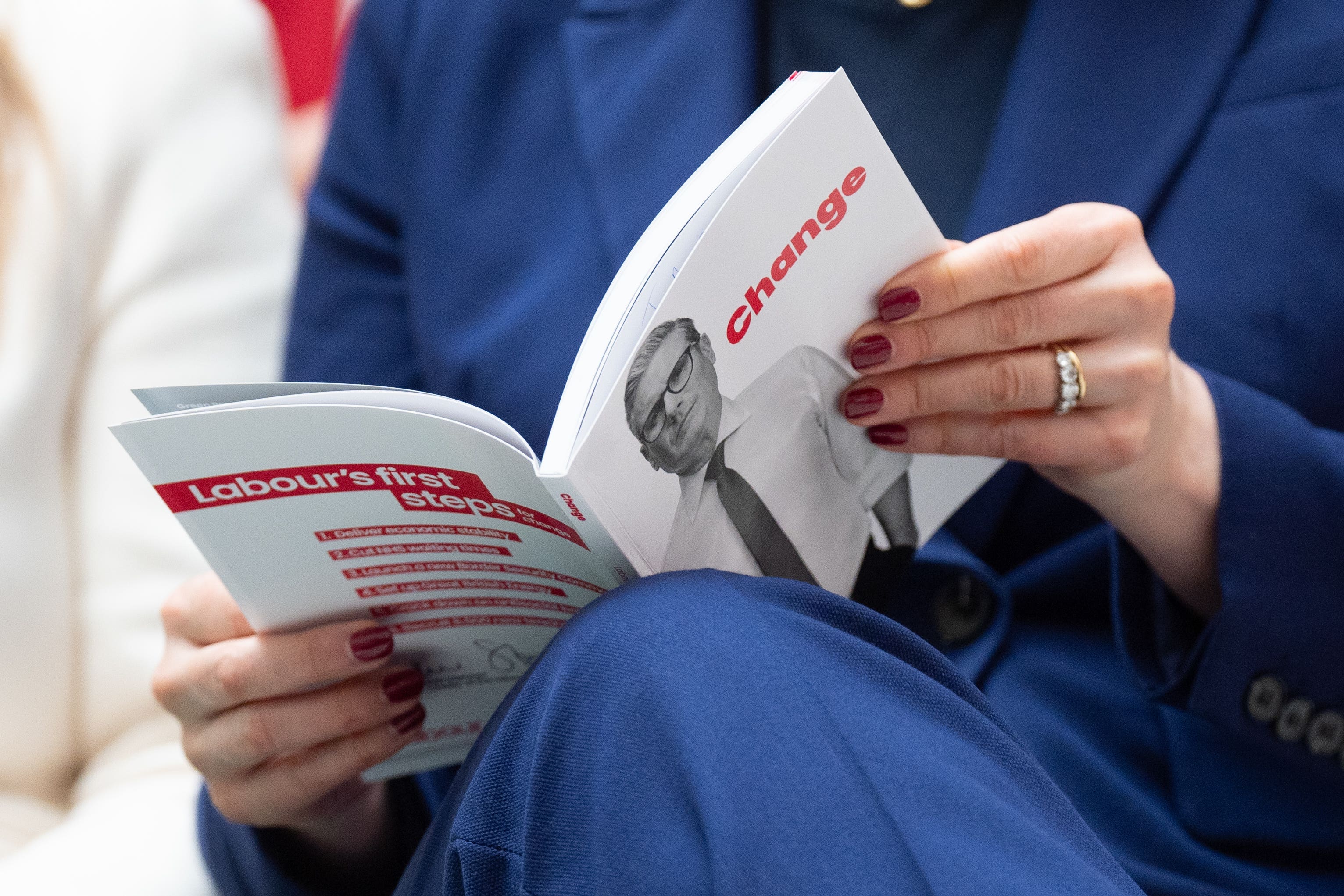Half of voters doubt parties can afford their manifestos, new poll reveals
Some 63% said Labour’s manifesto represented positive change for Britain, but 50% expressed scepticism the party could afford it.

Your support helps us to tell the story
From reproductive rights to climate change to Big Tech, The Independent is on the ground when the story is developing. Whether it's investigating the financials of Elon Musk's pro-Trump PAC or producing our latest documentary, 'The A Word', which shines a light on the American women fighting for reproductive rights, we know how important it is to parse out the facts from the messaging.
At such a critical moment in US history, we need reporters on the ground. Your donation allows us to keep sending journalists to speak to both sides of the story.
The Independent is trusted by Americans across the entire political spectrum. And unlike many other quality news outlets, we choose not to lock Americans out of our reporting and analysis with paywalls. We believe quality journalism should be available to everyone, paid for by those who can afford it.
Your support makes all the difference.At least half of voters are sceptical that the main parties can afford their manifesto pledges, a poll has found.
The Conservatives, Labour and the Liberal Democrats all published their manifestos last week, claiming to have fully costed their policies to ensure they were affordable.
But a survey by pollster Ipsos published on Tuesday suggests most of the public do not share that view.
Some 50% said they were not confident that Labour could afford the policies in its manifesto, with just 37% saying they were confident.
But the figures for the other main parties were worse. Just a quarter of voters were confident the Conservatives could afford their policies while 62% said they were not.
For the Lib Dems, 57% said they were not confident their policies were affordable.
Asked how the parties would respond to their policies proving unaffordable, more than half the public thought Labour would raise borrowing, increase taxes or not deliver on all their plans, while 67% thought the Conservatives would not deliver and 52% expected the Tories to cut spending.
Keiran Pedley, UK director of politics at Ipsos, said proposals to improve public services tended to poll best, even if the public were “sceptical that any party can deliver all they have promised within existing spending plans”.
The top-polling policy for each party related to the NHS, with 87% supporting the Lib Dems’ promise to guarantee patients can start cancer treatment within 62 days of an urgent referral – the highest polling of any policy.
Some 83% backed Labour’s pledge to deliver 40,000 new NHS appointments a week, while 74% supported Tory plans to increase NHS spending and build 100 new GP surgeries in England.
The least popular policies from each party were lowering the voting age to 16, included in both the Labour and Lib Dem manifestos and opposed by just under half of voters, and the Tory plan to reintroduce national service, which was opposed by 45% of people.
Overall, 63% of people said Labour’s manifesto would represent a positive change for Britain, compared with 55% who said the same about the Liberal Democrats and 44% who said the same about the Conservatives.
Mr Pedley said Labour would be “encouraged” by this finding, and “look to build on that relative goodwill – compared to others – as polling day approaches”.
Polling on the Liberal Democrat and Conservative manifestos surveyed 1,170 British adults between June 11 and 12. Polling on the Labour manifesto surveyed 1,083 British adults between June 12 and 13.